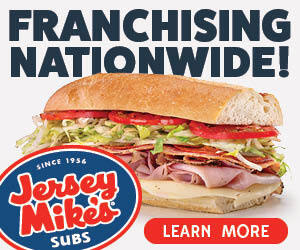Food for Thought: Are Restaurants Becoming Non-Brick-and-Mortar Service Brands?

Covid-19 forced franchised food brands to innovate to survive, accelerating changes already in motion before the pandemic arrived just over a year ago now. One of those changes, which some already view as a seismic shift for the restaurant industry, is the inception of food brands that have no retail storefront. These delivery-only operations go by different names – ghost kitchens, host kitchens, virtual kitchens, cloud kitchens, dark kitchens, and more. And while they may differ in their approaches, all share a similar fundamental strategy made possible by advances in technology and the changing behavior of consumers brought on by Covid.
The convergence of technologies over the past decade enabled the rapid growth of online ordering and payment, third-party delivery, and the introduction of autonomous delivery vehicles. Nearly two years ago, Domino’s announced it was testing self-driving delivery vehicles from Nuro. And in late March this year, Chipotle announced it was investing in Nuro.
With the arrival of 5G, the integration of existing technologies such as robotics, artificial intelligence, cloud-based computing, big data, and embedded sensors is becoming a game-changer allowing brands of all kinds to add new and unprecedented capabilities and services.
“We are living in the age of convergence,” says David Bloom, chief development and operations officer of Capriotti’s.
With restaurants closed and/or capacity severely restricted, virtual kitchens offer many advantages beyond an additional revenue stream employed to weather the pandemic. These include the elimination of site selection and real estate leases, reduced labor costs, and perhaps most important, the ability to expand into new markets by partnering with facilities that will prepare their food to brand standards and deliver it through their existing partnerships with third-party delivery companies. The cost structures are still being worked out, but overall it seems like a good way to introduce a new brand or to introduce an existing brand into a new market at a much lower cost than in the past.
A growing number of established food brands are jumping on the virtual bandwagon. Brands testing the concept of delivery-only host/ghost/virtual kitchens include (among a rapidly growing roster) Fazoli’s, Chili’s, Maggiano’s Little Italy, Applebee’s, Ruby Tuesday, Nathan’s Famous, Just Salad, Sweetgreen, Dickey’s, Smokey Bones, and BurgerFi.
Last August, Dickey’s began offering its franchisees the option to open ghost kitchen locations that operate exclusively through off-premise operations. Dickey’s CEO Laura Rea Dickey said that franchisees of the brand’s virtual kitchens would receive the same support, infrastructure, and technology it provides to its brick-and-mortar restaurants.
On the operational side, many new companies are offering their own versions of these remote kitchens. A growing roster of brands in this field includes Kitchen United, Zuul Kitchens, Epic Kitchens, Reef Kitchens, Kitopi, CloudKitchens, and DoorDash Kitchens.
Franklin Junction, a spinoff of Aziz Hashim’s NRD Capital, has embraced its own version of the model, which he explained in an April interview with Yahoo.com. “We came up with a solution and e-commerce based platform called the Host Kitchen Platform, where a kitchen can use its extra capacity and sell food from other known brands who also want to expand. So we are, in a way, connectors of existing restaurant and food service outlets with brands that want to grow. The beauty of our model is that there’s no capital expenditure on any side. The restaurant, who we call our host partner, already has built the restaurant, already has the employees, is already paying rent, and has purchased the permits.”
In early March Ghost Kitchen Brands and Walmart Canada announced a partnership that will allow customers to order freshly prepared meals in-store and online for contactless pickup or delivery from a third party. Customers can mix and match from more than 20 well-known brands including Quiznos, The Cheesecake Factory, Saladworks, and Ben & Jerry’s with more being added. All meals are prepared in one kitchen for a single pickup or delivery.
Walmart Canada’s Senior Director of Licensees Sam Hamam said, “We believe in Ghost Kitchen’s strategy and vision and we’re very excited to be the first retailer to team up with them.”
Nathan’s Famous, the iconic New York hot-dog brand, has signed partnerships with Reef Kitchens, Kitopi, and Franklin Junction to expand the brand’s reach to at least 500 delivery-only locations.
Dog Haus is another brand seriously invested in this emerging field of food brands without retail storefronts. In March 2020, Dog Haus founders launched The Absolute Brands, an early entrant in what they called “off-premise dining experiences.” Its virtual brand offerings include Bad-Ass Breakfast Burritos, Bad Mutha Clucka, Plant B, Huevos Dias, and just last week added two new virtual brands: Jailbird (wings) and Big Belly Burgers.
We’ve only scratched the surface here. Where will it end? It’s just begun.
Share this Feature
Recommended Reading:
FRANCHISE TOPICS
- Multi-Unit Franchising
- Get Started in Franchising
- Franchise Growth
- Franchise Operations
- Open New Units
- Franchise Leadership
- Franchise Marketing
- Technology
- Franchise Law
- Franchise Awards
- Franchise Rankings
- Franchise Trends
- Franchise Development
- Featured Franchise Stories

$120,000
$1,000,000





 The multi-unit franchise opportunities listed above are not related to or endorsed by Multi-Unit Franchisee or Franchise Update Media Group. We are not engaged in, supporting, or endorsing any specific franchise, business opportunity, company or individual. No statement in this site is to be construed as a recommendation. We encourage prospective franchise buyers to perform extensive due diligence when considering a franchise opportunity.
The multi-unit franchise opportunities listed above are not related to or endorsed by Multi-Unit Franchisee or Franchise Update Media Group. We are not engaged in, supporting, or endorsing any specific franchise, business opportunity, company or individual. No statement in this site is to be construed as a recommendation. We encourage prospective franchise buyers to perform extensive due diligence when considering a franchise opportunity.